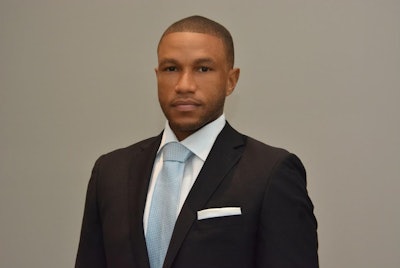The placement of sports in the lexicon of American society is undeniably prominent, potent, and powerful. It is one of the few things that bring people together from different races, ethnicities, religions, sexual orientations, and genders. One’s background or status bears no weight on who wins on the playing courts and fields. It is arguably as close to a pure meritocracy as one gets as it consists of a player or team’s ability, preparation, strategy, execution, and performance against an opponent with clear rules and fair play.
Unfortunately, the equitable and inclusive environment that exists within the athletic competition often ends immediately after the game has ended and the rest of life continues. There is a potential role for people within the sports world to help to extend this environment into other areas and create a more just and equitable society.  Dr. Marcus Bright
Dr. Marcus Bright
Rising Coaches, an organization for coaches that connects, develops, and facilitates career advancement for them, is seeking to do just that through the organizing of the college basketball community around advancing social justice off-the-court through their “Equality and Inclusion Night” campaign.
The Rising Coaches Diversity, Equity, and Inclusion (DEI) Alliance, which is made up of 12 different minority and social justice coaching organizations, is asking all teams in men’s and women’s college basketball to participate in an Equality and Inclusion Night during one of their games between February 14-20, 2022. During the game, coaches will wear all black on the sidelines and an “equal sign” pin that has been created to symbolize equality. Rising Coaches CEO Adam Gordon stated that the DEI Alliance is also encouraging teams and institutions to “find an area of equality and inclusion that they would like to draw attention to and/or an organization to partner with.”
For example, a team could choose to continue the final mission of Dr. Martin Luther King’s life which was a focus on economic justice and inclusion. They could utilize their platforms both in the community where their college or university is located and, in the hometowns, where student-athletes are from to elevate awareness around opportunities to improve economic opportunity and equity.
The next step beyond bringing awareness to critical issues as this campaign aims to do is to identify and promote policies and processes that will create tangible progress. Members of the college basketball community do not necessarily have to be policy experts in their issues of choice, but they can use their leverage to bring key people to the table to collaborate on addressing societal problems. They can help to start key conversations with decisionmakers and bring along a coalition with them to help complete them.
Coaches and student-athletes can also exercise influence within their own arena by using their leverage to create off-the-court opportunities for groups of people who may have been previously locked out of certain areas like head coaching positions and roles within athletics administration. Pressure from current players would likely be highly influential in changing disparate numbers.
When members of the sports world increase their level of engagement in issues outside of athletics then it can potentially inspire more of the broader public utilize their own platforms to advance important causes. People of all walks of life can be motivated to address the stratification of opportunity that remains in many communities.
One key point is that there are multiple lanes that people can fill. There are multiple ways to make a difference. One can be out front or work behind the scenes. They can donate money and/or time. They can advocate for policy change directly with lawmakers or they can leverage their platform to provide opportunities for activities and experts to be exposed to larger audiences.
Sports is a vehicle that can be driven in multiple directions. It can be driven to highlight and intensify a focus on important issues, or it can be driven to distract and detract from substantive issues that have a systematic impact on the everyday lives of marginalized populations. If used properly, sports can be a great asset to social justice movements.
Coaches and student-athletes can attack societal challenges with the same vigor and enthusiasm that they exhibit on the courts and playing fields and be Hall of Famers in making a positive impact in areas that desperately need to be uplifted.
Dr. Marcus Bright is a scholar and educational administrator.



















